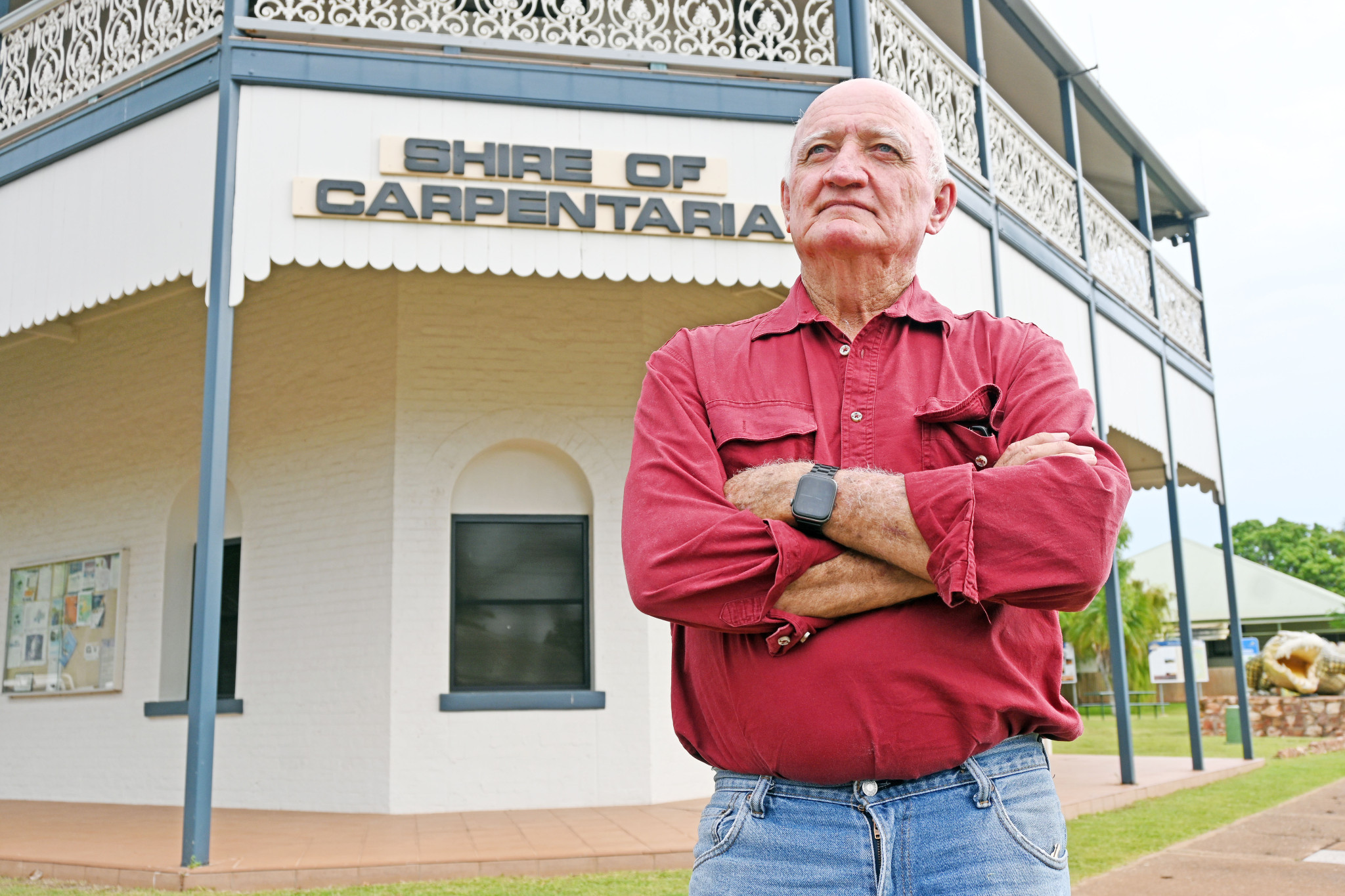General News
2 April, 2025
Mayor wants greater flexibility from NAIF to grow the region
Carpentaria Shire mayor Jack Bawden says the NAIF falls short of community expectations.

The Northern Australia Infrastructure Fund will not deliver for Gulf communities until its lending conditions are adjusted to suit the “realistic” business and housing needs of the region, says Carpentaria Shire mayor Jack Bawden.
The renewed calls come amid the clearest indications yet that an independent review has recommended lowering the current $10 million loan minimum for NAIF projects.
However, the findings are languishing on a federal minister’s desk and now cannot be made public until after the election.
An outspoken critic of the current lending arrangements, Cr Bawden is preparing to host the NAIF CEO for the first time in the Gulf later this month where he plans to educate the city-based executives on the needs of businesses in the bush.
Senior NAIF officials hosted an online webinar last week that detailed how the $7 billion taxpayer-funded financier would steer efforts towards supporting large scale housing estate projects across the north.
NAIF chief investment officer Stephen Land said the success of the 490-dwelling Cairns Senior Community Housing Project, which was co-funded with ANZ bank and the federal government’s $1 billion National Housing Infrastructure Facility, had demonstrated NAIF’s ability to address large scale housing shortages.
He said NAIF was a “gap financier” that sought multi-agency funding to construct projects and long-term lease arrangements for any accommodation spaces were necessary to generate cash flow and decrease investment risk with taxpayer money.
Mr Land said he believed that recent developments in module home construction made it an economical option to tackle the stretched logistics chains and skilled labour shortages that cause construction costs to often exceed the value of the end product across the north. However, he added there was currently no module processing factory located in northern Australia.
“Pretty much every factor that is involved in the construction of accommodation is extenuated in northern Australia and therefore, they are all factors we need to look at and try to address through the ability of NAIF to fill that funding gap,” he said.
The NAIF has undergone an independent review in recent months to examine whether its investment mandate should be extended beyond 2026 and how it could best support private enterprise across northern Australia.
The review was finalised in February and presented to federal Minister for Northern Australia Madeleine King, who chose not to release its contents before the election was announced.
Despite this, outgoing NAIF CEO Craig Doyle suggested that stakeholders should keep an eye out for recommendations in the review that would enable the loan minimum to decrease.
“Watch this space in terms of our ability to play with sums lower than $10 million for projects in the coming six to 12 months as an outcome of the statutory (independent) review,” Mr Doyle said.
While expressing support for any efforts that lowered the loan minimum, Cr Bawden said he believed NAIF was failing to deliver on its mandate to increase investment in northern Australia because its senior management lacked an understanding of the type of businesses that fuel the region’s economy.
“NAIF is spending a bunch of money in Cairns but that is a city that is up and running,” he said.
“NAIF is supposed to be about getting northern Australia up and running as a whole and that means underpinning investment in the region as a whole, which means they should be investing in these smaller communities.
“That’s why I have been flapping my gums for ages about lowering the bloody threshold.
“How are they going to get average Australians in the north into housing if they are just interested in the big end of town and the cities?
“NAIF needs to be underwriting the banks so they can lend out money in smaller amounts to get the banks’ confidence back into communities like those in the Gulf.
“It is small to medium sized businesses in our region that need the help – we have older people working in their businesses out here that should be sitting on the verandah watching their grandkids, but young people cannot take over these businesses because the banks won’t give them the loan.”